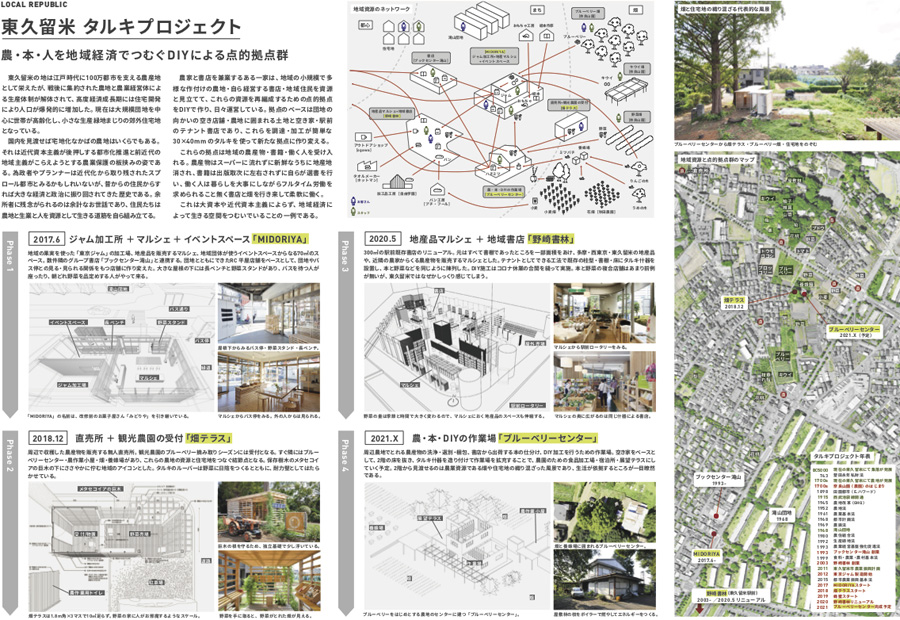

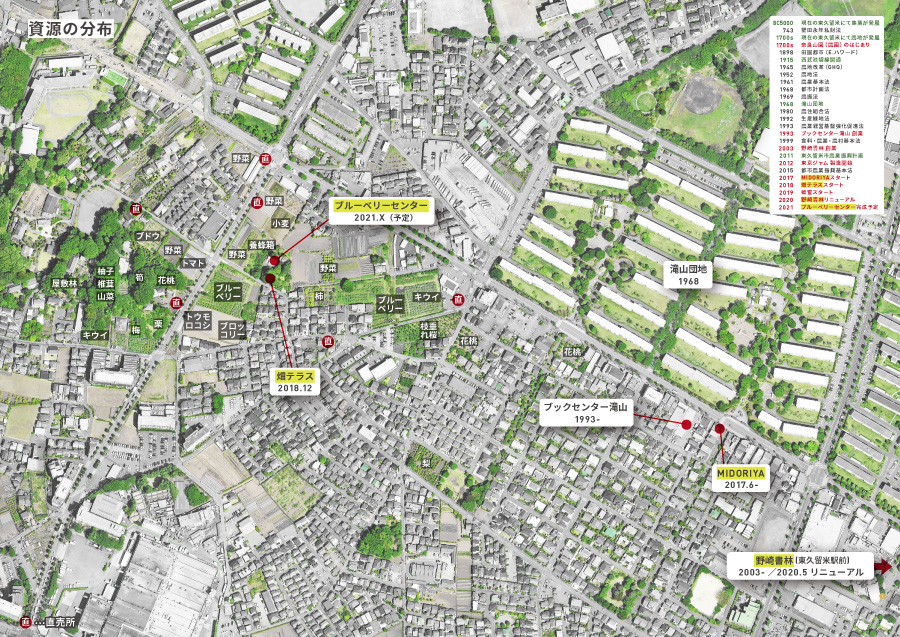
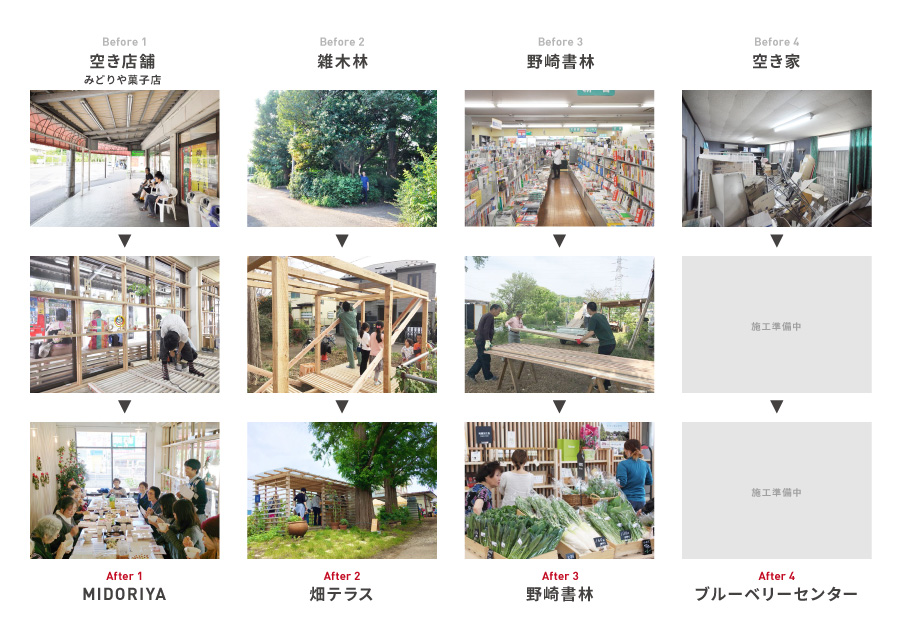
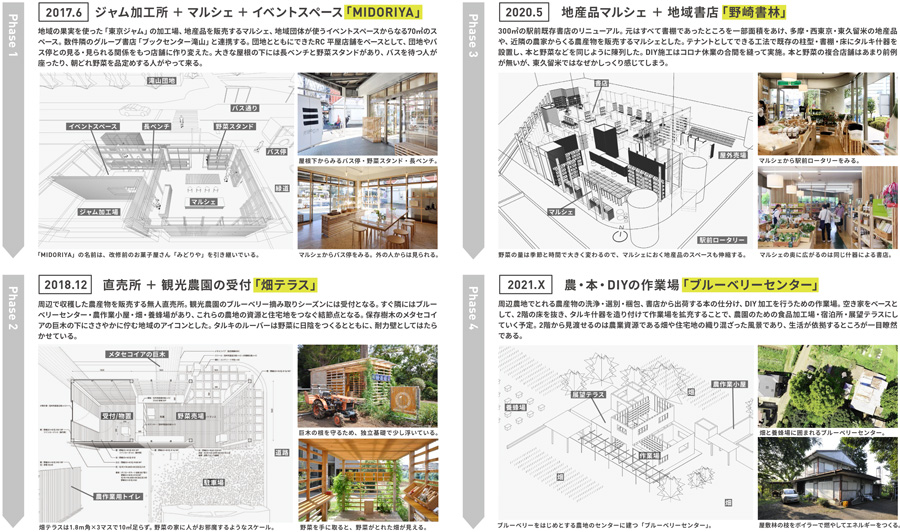
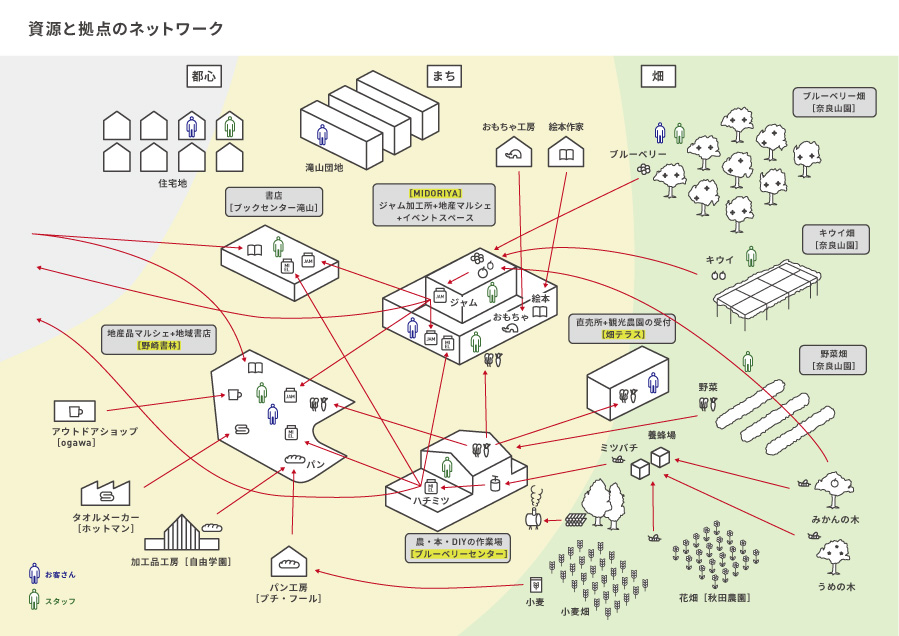
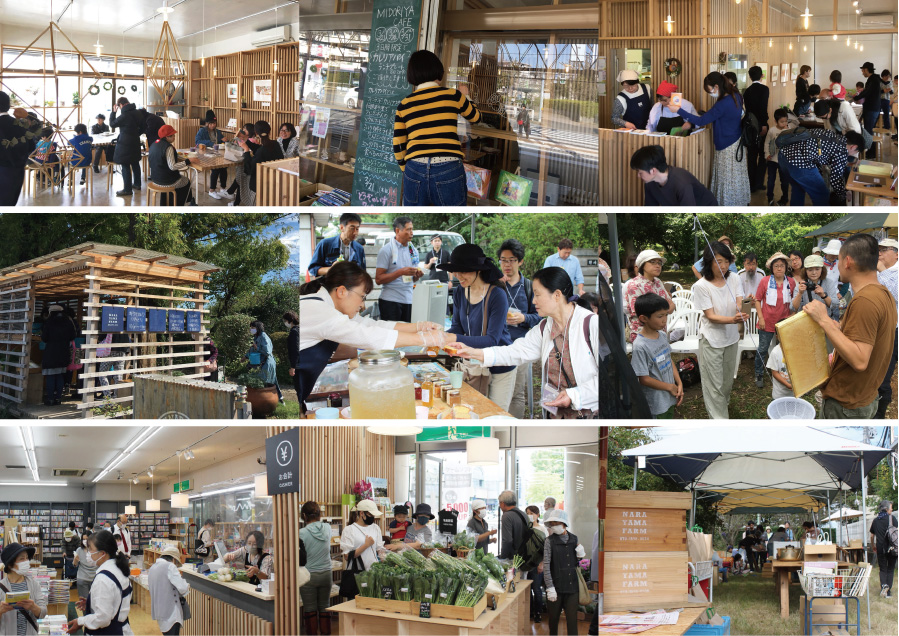
東久留米の地は江戸時代に100万都市を支える農産地として栄えたが、戦後に集約された農地と農業経営体によ
る生産体制が解体されて、高度経済成長期には住宅開発により人口が爆発的に増加した。現在は大規模団地を中心に世帯が高齢化し、小さな生産緑地まじりの郊外住宅地となっている。
国内を見渡せば宅地化なかばの農地はいくらでもある。それは近代資本主義が後押しする都市化推進と前近代の
地域主義がこらえようとする農業保護の板挟みの姿である。為政者やプランナーは近代化から取り残されたスプ
ロール都市とみるかもしれいないが、昔からの住民からすれば大きな経済と政治に振り回されてきた歴史である。余所者に残念がられるのは余計なお世話であり、住民たちは農地と生業と人を資源として生きる道筋を自ら組み立てる。
農家と書店を兼業するある一家は、地域の小規模で多様な作付けの農地・自ら経営する書店・地域住民を資源と見立てて、これらの資源を再編成するための点的拠点をDIYで作り、日々運営している。拠点のベースは団地の向かいの空き店舗・農地に囲まれる土地と空き家・駅前のテナント書店であり、これらを調達・加工が簡単な30×40mm のタルキを使って新たな拠点に作り変える。
これらの拠点は地域の農産物・書籍・働く人を受け入れる。農産物はスーパーに流れずに新鮮なうちに地産地消され、書籍は出版取次に左右されずに自らが選書を行い、働く人は暮らしを大事にしながらフルタイム労働を求められること無く書店と畑を行き来して柔軟に働く。
これは大資本や近代資本主義によらず、地域経済によって生きる空間をつむいでいることの一例である。
設計 IN STUDIO(小笹泉、奥村直子)、家入杏
デザイン 上田真里
施工 IN STUDIO(小笹泉、奥村直子)、施主
写真 小笹泉、野崎林太郎
The land of Higashikurume prospered in the Edo period as an agricultural area supporting a million city, but after the war the production system was dismantled by concentrated farmland and agricultural management entities, and the population exploded due to housing development during the period of rapid economic growth. The population exploded during the period of rapid economic growth due to housing development. Today, households are aging in large housing estates, and the area has become a suburban residential area with small green spaces.
Across the country there is plenty of farmland in the process of being converted to housing. This is a situation where modern capitalism is pushing for urbanisation, while pre-modern regionalism is trying to protect agriculture. It may be seen by politicians and planners as a sprawling city left behind by modernity, but for the old inhabitants it is a history of being swept along by big economics and politics. It is not the place to be regretted by strangers, and the inhabitants have made their own way of life, using their farmland, their livelihoods and their people as resources.
One family, a farmer and a bookshop owner, sees the local small-scale and diverse crops of farmland, the bookshop they run, and the local residents as resources, and they have created a DIY hub to reorganise these resources, which they run on a daily basis. The base of the base is a vacant shop opposite the apartment block, a vacant house and land surrounded by farmland, and a tenant bookshop in front of the station, which are transformed into a new base using 30x40mm talkies that are easy to procure and process.
These hubs will host local produce, books and workers. The produce is fresh and consumed locally rather than being sold to supermarkets, the books are selected by the authors themselves rather than being controlled by publishing agents, and the workers can work flexibly between the bookshop and the fields without being required to work full time while respecting their livelihood.
This is an example of how a local economy can create a space to live, without the need for large capital or modern capitalism.
Design : IN STUDIO (Izumi Kozasa, Naoko Okumura), Kyo Ieiri, Mari Ueda
Construction : IN STUDIO (Izumi Kozasa, Naoko Okumura), Client